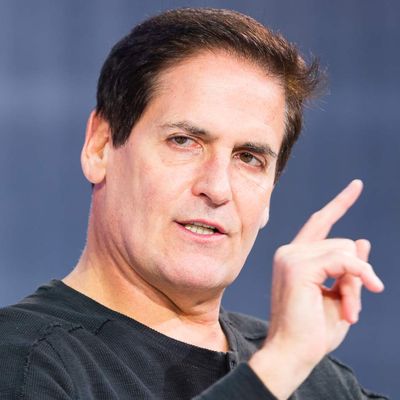
It’s about that time in the presidential election cycle — less than two years (!) from the early caucuses and primaries, but well before the actual midterms — where almost anything seems possible, particularly in an era where Trump Years make a month feel like an eternity. So it’s not surprising that we are reading items like one in Axios today reporting that Mark Cuban thinks that if Republicans hang on to Congress this November, it would create “an opportunity for somebody to run as an independent” in 2020.
The idea, I suppose, is that two more years of trifecta Republican control of the federal government will sour more voters on the GOP while exposing Democrats as impotent or irrelevant. More broadly, Cuban’s comments reflect a widespread belief that under exactly the right circumstances, an independent presidential candidate with money and charisma can shatter the partisan duopoly and seize the White House.
Presumably, exactly the right circumstances for an indie run have not occurred in the 46 presidential elections since the Era of Good Feelings ended and two-party politics took over. In 2016, another billionaire, former New York mayor Mike Bloomberg, thought a general-election contest between Donald Trump and Bernie Sanders would be exactly the right circumstances, and demurred when only half of that matchup developed. But then, as now, the evidence for the original proposition was limited. A January 2016 Morning Consult survey showed Bloomberg only receiving 12 percent of the vote (and only 11 percent of self-identified independents) against Sanders and Trump.
The eternal template for the kind of thing Bloomberg considered in 2016 and Cuban is considering now is the 1992 Ross Perot presidential candidacy. Yes, Perot was a serious factor in that election, mostly early on when Poppy Bush’s approval ratings were declining (eventually bottoming out at 34 percent shortly before the election) and Bill Clinton was a relatively little-known pol who may have avoided the draft and/or cheated on his wife. In the end, though, Perot got just under 19 percent of the vote, and finished third in 48 states (all but Maine and Utah).
More than two decades later, to the extent that there are still elements of Perot’s constituency around, they’re probably not on the table for an indie running in 2020. Check out this comment from Stan Greenberg, the reigning expert on Perot voters, about the kind of candidate who might attract free-floating independent voters going into the 2012 election:
[T]he ideal candidate is probably a businessperson who’s not from the financial community, who has a strong anti-China current and a strong America-first current.
That candidate appeared in 2016 and managed to win the GOP nomination.
Now, it’s possible that Mark Cuban has in mind some unexpected message that might resonate with voters disenchanted with both parties. But he has identified himself as a social-issues moderate and a fiscal conservative. While this is a point of view that’s overrepresented among elites, it’s the exact opposite of where the largest political vacuum lies: If any category of voters lack representation, it’s economic liberals who are social conservatives.
More generally, the prevailing force in contemporary politics is intense partisan attachment, not the search for some “third option” who purports to stand outside of both parties. Inevitably, Donald Trump’s election has led a lot of rich “outsiders” to ask themselves: “If him, why not me?” That’s particularly true, most likely, of Mark Cuban, who like Trump is a television celebrity. But Cuban and others had best understand that Trump’s way — taking one of the two existing major parties by storm — is the only way it’s going to work for the foreseeable future.






























